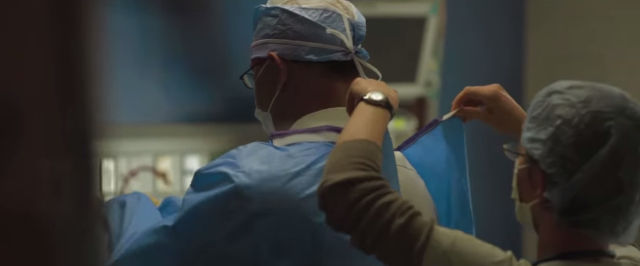
by Rich Fabian, Chief Operating Officer, FUJIFILM Sonosite
A recent article in the Sydney Morning Herald about a push for increased point-of-care ultrasound (POCUS) funding caught my eye. I was initially excited that the topic was receiving such prominent placement, but after delving in, I realized that that situation being described was obviously very frustrating for the people involved.
The article describes three problems that Australian providers and patients face when it comes to the use of POCUS in Australian Emergency Departments.
Medical Professionals Need POCUS Training
From the Sydney Morning Herald:
“What if there was a critical medical device sitting unused in an emergency department because no doctor on the shift knew how to operate it? That's the predicament in many hospitals when a point-of-care ultrasound (POCUS) offers patients faster and more accurate care, but not all junior emergency physicians know how to use them.”
POCUS education must be wide-spread and continuous. After all, POCUS stands for “point-of-care ultrasound,” and it indicates that ultrasound is provided wherever a patient is receiving care. This might be in a hospital bed, or lying on the street, or in bed at home with an EMT at their side. Because a wide variety of medical professionals may be administering care, hospitals need to be consistent in their approach to education of POCUS users.
What I am saying is, everyone who might use POCUS should be educated on using it. This goes for surgeons and GPs, nurses and nurse practitioners, paramedics and EMTs, and anyone else who may need to diagnose a pleural effusion or pneumothorax.
Perhaps it’s because I work for a company that features a commitment to education as a founding brand pillar, but I can’t stress this enough: train your people on POCUS! And keep training them. POCUS is life-saving technology that’s cost-effective and non-invasive, and if the system is a good one, fairly intuitive. It’s a shame not to promote its use among all able healthcare providers.
POCUS Machines Should Never Stay Broken
"You've got a whole bunch of machines breaking down … the technology changes to the point that it becomes obsolete, but we don't have the recurrent funding to address that.”
I have to admit that I shuddered when reading this quote. POCUS machines aren’t exactly coddled, but they should be built to withstand a fair amount of abuse. But should a machine break down, it should never stay broken – it should be repaired by the manufacturer in a timely fashion. And if a machine has become obsolete, the manufacturer should accept a trade-in for a credit toward a newer model.
POCUS Should Be Expanded Beyond the Trauma Bay
The case examined in the Morning Herald’s article involves a 53 year-old woman who reported to the ED with pain in her abdomen. Although requested, no ultrasound was provided, and she was sent home with medication for acid reflux. She was able to obtain an ultrasound at another medical facility and was diagnosed with gallstones, one of which was blocking a duct and infected, requiring surgical removal.
We’ve all heard horror stories about the dangerous conditions that are missed in the ED, resulting in further patient sickness and sometimes death. In this case, the patient’s life was not in immediate danger. That said, she could have been given ultrasound examinations right away to help diagnose her problem. POCUS can be used in so many settings – not just in trauma bays, but in so many other facets of emergency care, like with musculoskeletal issues, pregnancy exams, and in multi-modal pain care procedures (like nerve blocks to relieve pain from a fractured hip).
The Sydney Morning Herald reports that physicians are clamoring for better funding – and arguably that’s very important – but ultrasound machine vendors share in the responsibility to educate customers and provide much-needed service and post-sales support. If the hospitals featured in this article were my customers (they aren’t – yet), I’d be concerned about my company’s legacy in the Australian healthcare system.
POCUS is, first and foremost, about empowering healthcare providers at the point of patient care. POCUS is a tool that grants access to usable information that can drastically improve the patient care path. When providers can offer efficient, accurate, cost-effective diagnoses, everyone wins.
I’ll admit that not all ultrasound vendors are interested in extensively educating users – it’s not, by definition, something that most medical device manufacturers necessarily commit to. And perhaps I am biased, because I work for a company that counts a commitment to POCUS education among its foundational pillars. But it would appear that the best value for a healthcare system, whether it’s a massive IDN in the U.S. or a public hospital in Australia, would be found with a POCUS vendor that enthusiastically embraces ultrasound education as a means for providing more efficient, accurate patient care.
Train Users in Point-of-Care Ultrasound
Want to learn more about POCUS education and training? Visit our Education Index page and select from a full range of POCUS education materials, or learn more about our Ultrasound Training and Partner Resources for medical professionals.


